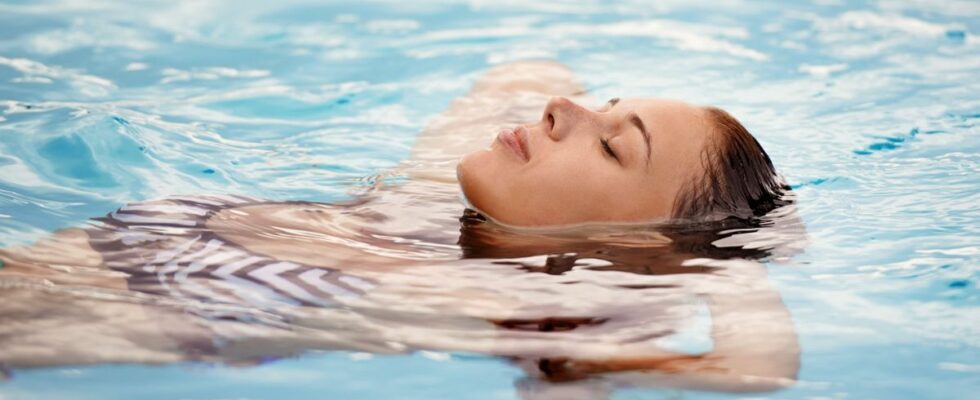Published on
Updated
Reading 2 min.
Pool lovers, take note: swimming in the clear water of pools is not harmless. Viruses and bacteria can make you sick. Our tips for a carefree summer.
With the arrival of sunny days, swimming pools, spas and water parks become favorite places for young and old. As temperatures rise, these pools become more and more crowded, filled with vacationers in search of freshness and relaxation. That being said, the use of chemicals does not protect you from all infectious risks: many viruses and bacteria present in water can make you sick.
Water contaminated with germs
“You can get diseases related to the bathing… [à cause] water contaminated with germs” explains to the Huffpost Jasen Kunz, head of the water program within the waterborne disease prevention branch of the Centers for Disease Control and Prevention (CDC).
So, swimming pools, even though they are treated with disinfectants such as chlorine, can still harbor germs. A risk that is even greater if pool maintenance is neglected or if swimmers do not respect hygiene rules.
This poisoning can also result from a “contact with chemicals in the water or inhalation of chemicals that evaporate…and turn into gas in the air”the expert further specifies.
The three most common diseases
Some of the most common illnesses that can be contracted from swimming in contaminated water include:
- Diarrhea. “Millions of germs can end up in the water when a person with diarrhea has an accident, and other people can get sick from swallowing even a small amount.”says specialist Jasen Kunz.
- Swimmer’s ear, also known as otitis externa. This infection of the outer ear often develops after prolonged contact with contaminated water.
- Finally, itching, a rash or a cough may appear.Irritation can occur when pool chlorine turns into a chemical irritant when mixed with sweat, urine and dirt.”warns Clare Rock, professor at the Johns Hopkins University School of Medicine, to our colleagues at HuffPost.
Tips to minimize your risks
To minimize the effects of chemicals and the risks of contamination, several tips are useful:
- Take a shower before and after swimming;
- Wear swimming goggles;
- Moisturize your skin properly (it is the first to be affected by the ravages of chlorine);
- Do not drink pool water;
- Avoid water if you have an open wound or cut;
- Once you get out, dry yourself properly and get the water out of your ears.
These good reflexes can help you reduce the risks of poisoning and irritation of the eyes, skin and respiratory tract. You are now warned and can fully benefit from all the benefits of swimming!

